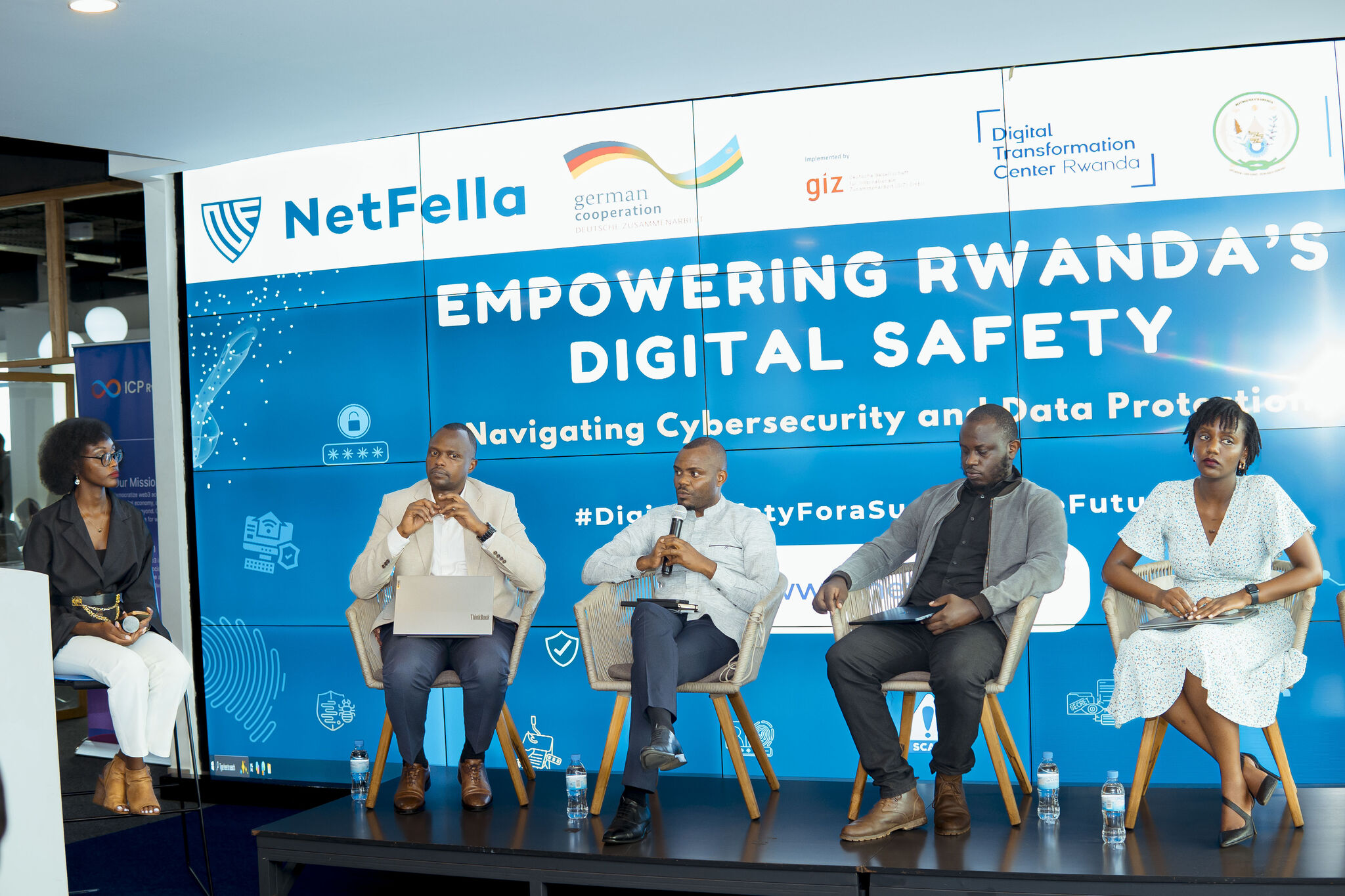The Internet Society Rwanda Chapter Participated in the Cybersecurity Awareness organised by NetFella
In an era defined by rapid digital transformation, cybersecurity remains a cornerstone for sustaining trust and security in digital spaces.
On November 26, 2024, the Internet Society Rwanda Chapter participated in a pivotal panel discussion titled “Cultivating a Culture of Cybersecurity: Empowering Communities for Safer Digital Engagement.” under the Cybersecurity Awareness organized by NetFella.
The panel delved into the importance of empowering communities to take active roles in ensuring online safety. Discussions highlighted the growing threats posed by cybercrime, misinformation, and privacy violations, and how proactive community involvement could mitigate these challenges.
During this event, representative from ISOC Rwanda emphasized that cultivating a culture of cybersecurity begins with awareness and education.
“Cybersecurity is not just a technical issue—it is a shared responsibility. By equipping individuals with knowledge and tools, we can empower them to make safer digital choices, safeguarding not only their personal data but the integrity of our collective digital environment.”
ISOC Rwanda underscored the role Community-Based Internet Access Centers can play in ensuring that even the most vulnerable communities have the opportunity to participate in the digital economy without fear of exploitation.
Every community need an Internet Access Center that can serve as learning hub to run empowerment programs such as digital literacy, privacy and other online safety courses, these programs seek to equip communities with knowledge and skills to protect themselves and their communities online. Internet Access Centers can be established by leveraging existing support structures such as churches and schools to disseminate online safety information to the community to address the evolving cyber threat landscape.
The Internet Society Rwanda Chapter champions several initiatives to ensure the responsible use of the Internet by actively promoting cybersecurity literacy programs in schools and rural areas, encouraging both young and old people to adopt safe digital practices.
